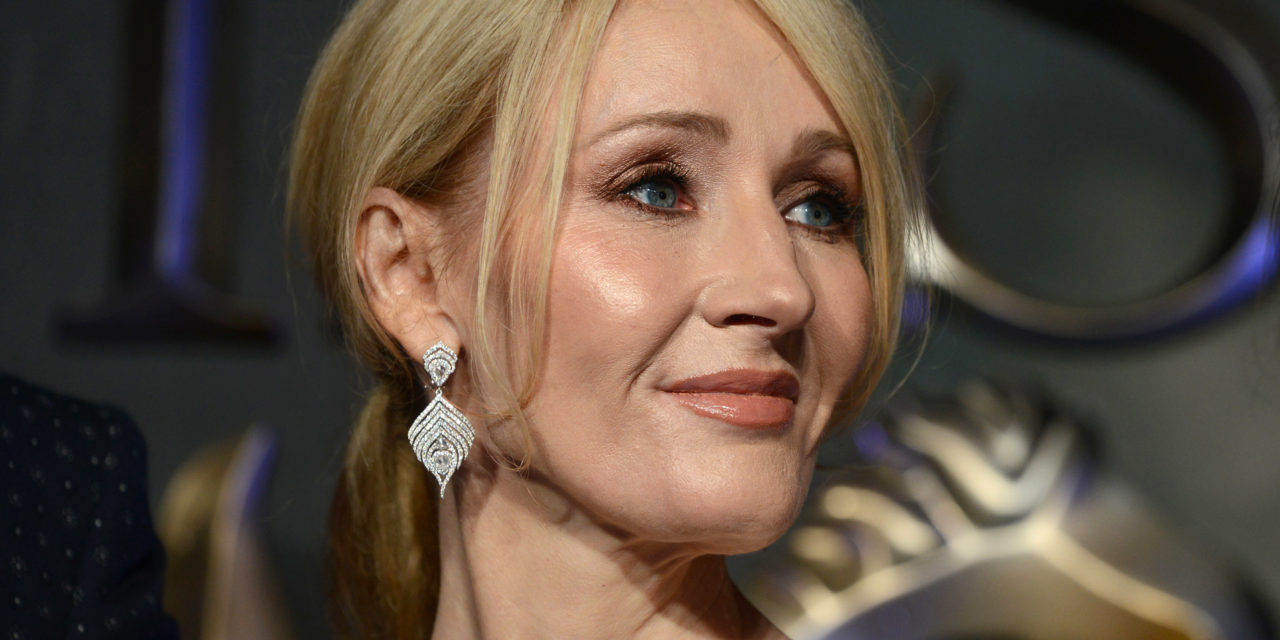J.K. Rowling is (again) speaking out against transgenderism and cancel culture – becoming one of the highest profile individuals to repeatedly do so.
Rowling made the comments in a recent interview with English journalist Suzanne Moore, where she also revealed that she is funding a new support center for women who have experienced sexual violence called Beira’s Place.
It’s a place just for women because, as Rowling has tweeted, “there’s no longer such a service here [in Edinburgh] and women were crying out for one.” She added, “A trans woman heads the only other rape centre in town.”
According to Moore, that center maintains the position that survivors of sexual assault “may need to be re-educated about trans rights.”
Speaking with Moore, Rowling talked about her liberal politics, feminist beliefs and surprise at realizing that she was the one who needed to speak up for women, and contra trans-activists who frequently promote men, who think they are women, to the detriment of “real” women.
“I have no irrational fear of or hatred towards trans people in the slightest,” Rowling said. “But if you’re going to say it’s ‘hate’ not to believe in a gendered soul, then we cannot have a discussion. We can’t. There’s nowhere to go. The tactic has been no debate, but it is changing.”
Rowling added that since she began speaking up for women, she thinks that “women are becoming much braver at expressing their opinions.”
As she saw the trans-movement gaining steam, Rowling realized:
It’s going to have to be, me, isn’t it? Because I will always be able to feed my kids, even if everyone boycotts my books for the rest of my life. That is a phenomenally privileged position to be in. I consider myself one of the most fortunate people on Earth.
Rowling’s rise to prominence as the author of the seven-volume Harry Potter book series is a fascinating story in itself. The hit series has become the best-selling book series in history, having sold over 500 million copies worldwide.
She famously came up with the idea for Harry Potter while on a delayed train from Manchester to London’s King’s Cross station. She spent the next several years organizing her thoughts, taking notes and outlining plots for the seven books.
After her mother died in on New Year’s Day in 1991, Rowling moved to Porto, Portugal, where she got married and had a child, Jessica. However, her marriage didn’t last, and she moved back to England in 1993.
There she found herself poor, unemployed and living off government welfare.
Rowling began visiting various cafes around Edinburgh, Scotland to write her Harry Potter first novel – on a typewriter. She brought along her child Jessica in a baby carriage.
“I couldn’t have written this book if I hadn’t had a few years where I’d been really poor as it’s possible to go in the UK without being homeless,” she said in 2012.
After finishing the novel, she sent it off to various publishers, where it was roundly rejected.
Twelve times.
One publisher that dismissed the book – Constable & Robinson – regrettably rejected the novel over concerns that the publishing house “could not publish it with commercial success.”
Her book was finally accepted by Christopher Little, an “obscure London literary agent,” who made a deal with Bloomsbury to print 500 copies of the book, giving Rowling a £2,500 advance (around $3,500).
In what’s become a classic rags-to-riches story, these days Rowling is worth hundreds of millions of dollars.
It’s this wealthy and fortunate position that Rowling has found herself in that has emboldened her to be willing to take the slings and arrows directed at her for speaking out against trans-activism – and up for the rights and safety of women.
“The only time I’ve ever made reference to being cancelled, my book sales went up. Why am I even laughing? I can’t believe I’m saying these words. But you have to mock them. I do not consider myself cancelled,” she told Moore.
Rowling added that the rise of “safe spaces” makes no sense to her. She said:
For me, a safe space is not somewhere where I have to use only the “correct terms” or where I am not allowed to talk about my own life experience. Or I am not allowed to profess a belief in biology. How is that a safe space for me? Of course not, nor is it a safe space for many, many women.
In standing up and speaking out against gender ideology, Rowling has certainly angered her friends and pleased those who aren’t normally aligned with her politically.
In Rowling’s first novel, Harry Potter and the Sorcerer’s Stone, the wise and elderly wizard Dumbledore says, “It takes a great deal of bravery to stand up to your enemies. But a great deal more to stand up to your friends.”
In standing up to her fellow liberals, Rowling has exhibited an extra dose of courage and conviction. Her bravery in standing up for the rights of women deserves to be recognized and commended.
Photo from Getty Images.






